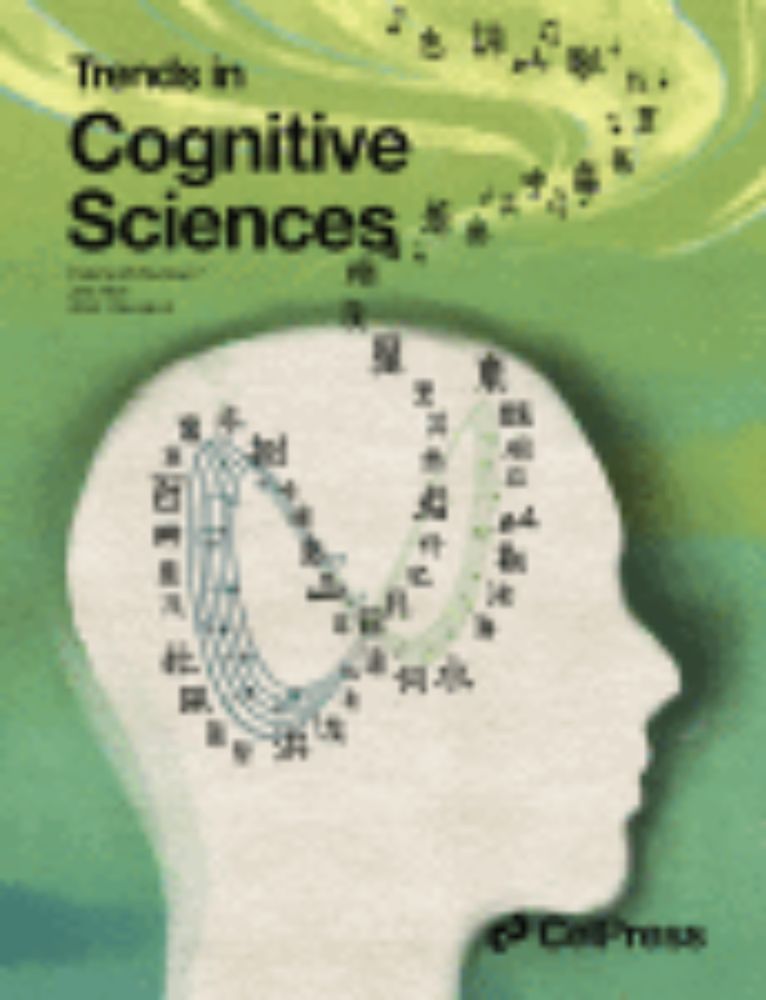
Thanks to fellow defenders @clionaod.bsky.social, Marc'Aurelio Ranzato, and @charvetcj.bsky.social
Defending the foundation model view of infant development www.sciencedirect.com/science/arti...
@lukasvogelsang.bsky.social
Simons Postdoctoral Fellow in Pawan Sinha's Lab at MIT. Experimental and computational approaches to vision, time, and development. Just joined Bluesky!

Thanks to fellow defenders @clionaod.bsky.social, Marc'Aurelio Ranzato, and @charvetcj.bsky.social
Defending the foundation model view of infant development www.sciencedirect.com/science/arti...
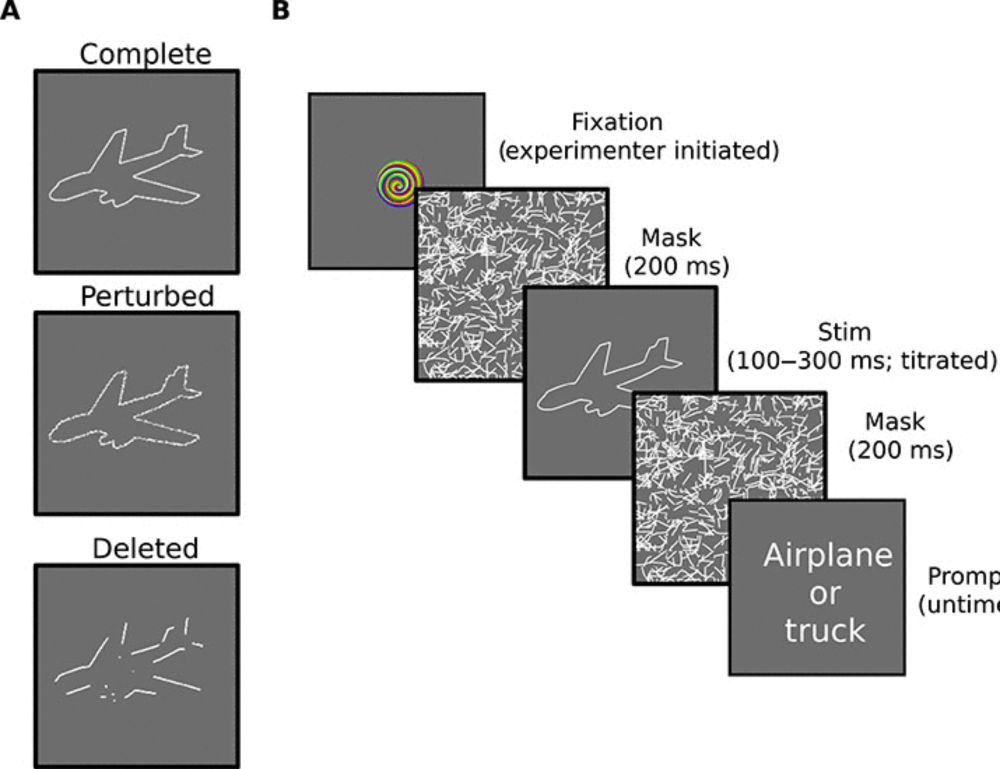
My paper with @stellalourenco.bsky.social is now out in Science Advances!
We found that children have robust object recognition abilities that surpass many ANNs. Models only outperformed kids when their training far exceeded what a child could experience in their lifetime
doi.org/10.1126/scia...
Thank you, Martin! Hope to see you at TRF4!
05.10.2025 00:52 — 👍 1 🔁 0 💬 0 📌 0
Excited to share our new review in #AnnualReviews Psychology on the role of time in perceptual organization! doi.org/10.1146/annu...
05.10.2025 00:48 — 👍 8 🔁 2 💬 0 📌 0On Tuesday, I will present on new tests of Gestalt processing capabilities in children treated for blindness late in life (Poster session: 13.30-16.30) and, on Friday, @marinv.bsky.social will present on adaptive initial degradations extended to the time domain (Talk: 12.40; Poster: 14.00-17.00)!
10.08.2025 22:30 — 👍 2 🔁 0 💬 0 📌 0
Looking forward to #CCN2025! Please come say hi!
On Monday, as part of the ‘From Child to Machine Learning’ Satellite sites.google.com/view/child2m... (3-6pm), I look forward to give a talk about our past work probing the hypothesis that visual degradations in early development may be adaptive.
5/ Thank you also for sharing your recent preprint, which I am looking forward to reading in greater detail shortly!
11.07.2025 05:31 — 👍 1 🔁 0 💬 0 📌 04/ Second: indeed, there is a mapping from the 1000 categories to the 16 broader classes, based on Geirhos' 2019 code that you can find here: github.com/rgeirhos/tex....
11.07.2025 05:31 — 👍 0 🔁 0 💬 2 📌 0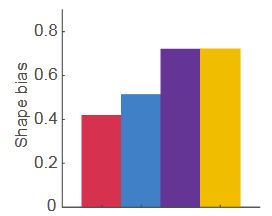
3/ Also, if I'm understanding it correctly, looking at Supplemental Figure 8E in Jang & Tong (2024) (www.nature.com/articles/s41...), it seems that the baseline AlexNet (red) had a shape bias of 0.4 as well, and strong blur (purple) then brought it up to around 0.7!
11.07.2025 05:31 — 👍 1 🔁 0 💬 1 📌 0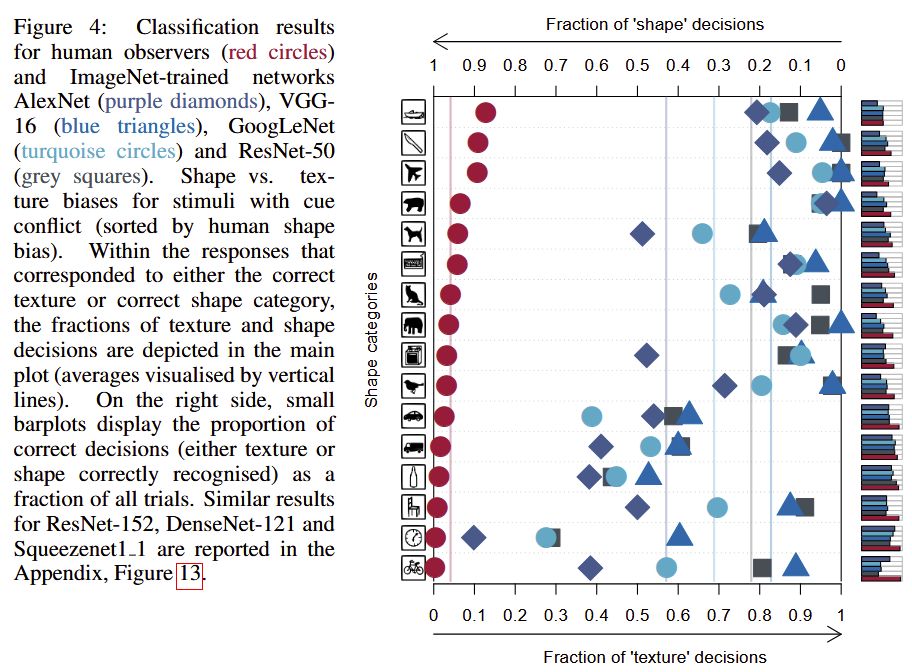
2/ First: while any absolute values were certainly not the focus of our paper, we did check the baseline and found that it was really quite similar to Geirhos et al. (2019), who had >0.4 for AlexNet. Below is a screenshot from their paper (similar to our Supplementary Fig 14 you shared before).
11.07.2025 05:31 — 👍 1 🔁 0 💬 1 📌 01/ Thanks, @sushrutthorat.bsky.social and @zejinlu.bsky.social! Great to hear from you, and I look forward to meeting at CCN! Two brief points below that might be helpful:
11.07.2025 05:31 — 👍 1 🔁 0 💬 1 📌 0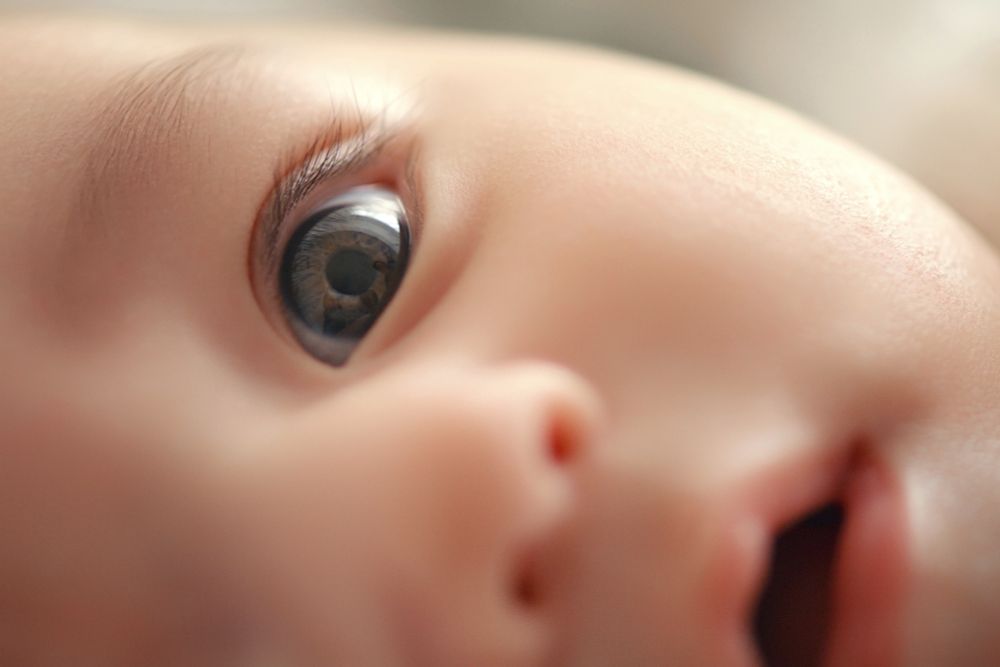
6/ Thanks to all authors (including Sid, who will soon celebrate his 100th birthday!), and the reviewers for particularly helpful feedback.
Paper: doi.org/10.1038/s420...
MIT News story: news.mit.edu/2025/study-b...
5/ Moreover, developmentally inspired training also led networks toward a stronger bias for global shape processing, potentially driven by magnocellular-like units. Together, this has implications for neuroscience and the design of more robust and human-like computational vision systems.
10.07.2025 04:31 — 👍 5 🔁 0 💬 2 📌 04/ While not ruling out the role of phylogenetic dispensation ('nature'), our results demonstrate the possibility of an experience-driven ('nurture') route to part of the emergence of this fundamental organizing principle in the mammalian visual system.
10.07.2025 04:31 — 👍 1 🔁 0 💬 1 📌 03/ Training deep networks with such joint developmental regimens revealed that the temporal confluence in the progression of spatial frequency and color sensitivities significantly shapes some neuronal response properties characteristic of the division of parvo- and magnocellular systems.
10.07.2025 04:31 — 👍 2 🔁 0 💬 1 📌 02/ Previously, we examined AID (reviewed in doi.org/10.1016/j.dr...) separately for the domains of visual acuity (doi.org/10.1073/pnas...), color sensitivity (doi.org/10.1126/scie...), and even prenatal hearing (doi.org/10.1111/desc...). Here, we consider visual acuity and color sensitivity jointly.
10.07.2025 04:31 — 👍 2 🔁 0 💬 1 📌 0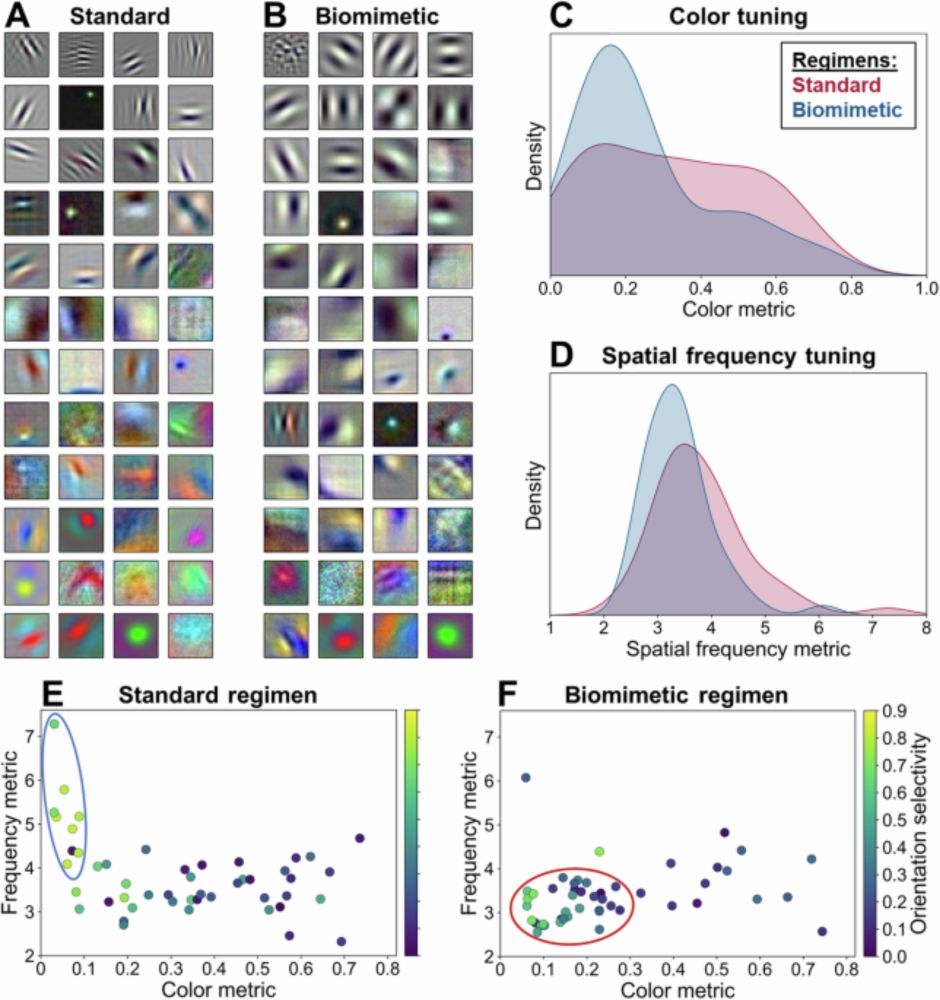
1/ New paper out in @commsbio.nature.com, led by @marinv.bsky.social: doi.org/10.1038/s420...! Across several past studies, we showed how newborns' degraded vision may benefit human development and inspire more robust deep networks. We have referred to this as Adaptive Initial Degradations (AID).
10.07.2025 04:31 — 👍 30 🔁 13 💬 1 📌 1